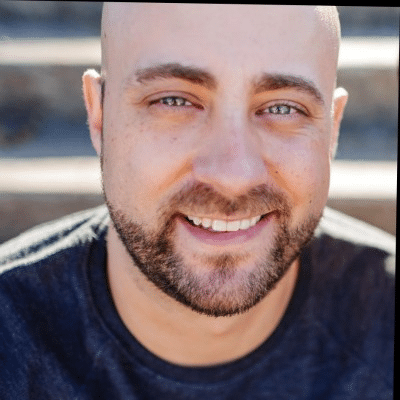“This is not only the end of the war, it is the end of an age of terror and death.” Welcome to President Donald Trump’s golden age for the Middle East.
Never mind that it was reported that dozens of Palestinians were shot by the Israeli Defense Forces (IDF) since this fragile ceasefire began. Never mind that Hamas has executed people in the streets (with an apparent tacit approval from Trump). Simply listen to the whimsical words of our dear leader who went on to prophesize to the Israeli Knesset that we are witnessing “the beginning of the age of faith, hope, and of God.” One might counter that the Jihadists blowing themselves up, religious settlers stealing land in the West Bank in the name of God, or the Christian Zionists fanatically cheering on Armageddon into the ears of our president have long believed we are in an age of faith and God, but I digress. We are undoubtedly in an age of hope, yet hope is a tricky thing.
The last week has been an emotional whirlwind, when many people had their hopes fulfilled, while others have seen their hopes dashed. The future remains uncertain, and the scars of this war will never fully heal. I worked at the Consulate General of Israel to the Southwest United States from 2016 until May of this year, where I led all of the Consulate’s interfaith outreach efforts. The project was what I would label a religious-based psyop meant to drive American Christians towards unconditional support for the Israeli government. I can confidently say that this conflict changed me and my relationship to hope in profound ways.
It was truly wonderful to see families reunited with their loved ones when the last living hostages were freed from over two years of brutal captivity in horrendous conditions. It was very painful to know how many families were robbed of this reunion. Still, it was comforting to know that there would be a pause in the fighting to give some overdue respite to innocent people in Gaza, but heartbreaking knowing most of them had no homes to return to; knowing so many suffering, traumatized, and hungry people would sift through the debris and detritus of their former lives searching for signs of loved ones lost in the fog of war.
Despite the relative respite from violence, there is little cause for optimism considering that Hamas seems unlikely to disarm and hardline Israeli voices call for the resettlement of Gaza and annexation of the West Bank. What is more, Americans ought to approach this moment with a great deal of unease as our country may be sending some two hundred boots on the ground into Gaza. This is all the more concerning given Trump’s pledge to disarm Hamas with possible violence should they refuse to disarm.
I sincerely hope these concerns are unfounded. I sincerely hope this is the end of the war and the start of a bright future. I hope that when the dust does finally settle, we learn that civilian deaths were massively overcounted—but I have already seen too much to hold my breath for such an outcome.
Though my own limited experience pales in comparison to those of innocent Palestinians in Gaza or Israeli hostages and their families, I do think there are a few stories that are relevant and worth telling in this moment. At one point during the war I was tasked with leading an initiative the Israeli Ministry of Foreign Affairs called “Adopt a Hostage.” I was tasked with identifying prominent pro-Israel pastors and church leaders and pairing them with specific Israeli hostages. The church leaders were instructed to organize formal prayer circles and events to intensively pray for their assigned hostages, and we even arranged Zoom meetings between family members of hostages and the leaders of these organizations.
Gadi Moses is a brilliant and kind elderly gentlemen who was taken from southern Israel on October 7. He is a pioneer and leader in sustainable agriculture and did hands-on training in potato cultivation in developing countries across the world. He was very active in his community in Israel and for those who know him is regarded as a humble and incredibly kind person who lived to help others. I assigned him to Pastor Becky Keenan, co-pastor of a largely Latino church in South Houston and leader of One with Israel (not to be confused with One for Israel, a Messianic proselytization outfit) who was already very active with what was happening in Israel and was eager to take on more projects.
The Bibas family had the youngest hostage taken of all of the victims of October 7 at only seven months old, along with his older brother who was also just a young child. We assigned them to Larry Huch’s Church in Dallas-Fort Worth who likewise was already involved in many efforts and was eager to take on more. Because there was so much else going on, and a level of disorganization in Jerusalem, we limited the number of people we worked on this project with. I took on this project with a great deal of seriousness, given the unimaginable horror these families were going through. I also had a great deal of fear and apprehension, not only because I figured some of the families might not be religious or may feel uncomfortable praying with evangelicals over Zoom, but because I knew it was quite likely that none of these hostages would survive the war. I knew how hard it would be to speak to the families and the organization leaders if or when that news was received, especially given the level of hope I sensed from some of the individuals involved and the way the project was tied to their religious beliefs.
The third hostage, Alexandre Danzig, I assigned to Doug Stringer and Somebody Cares. An older Israeli man whose parents had survived the Holocaust in Poland and emigrated to Israel not long afterwards, Alexandre had been involved in a lot of Holocaust remembrance efforts in both Poland and Israel and was also involved in peace efforts. He was abducted from his Kibbutz on October 7. I remember sitting in the conference room alone in a Zoom call with Dr. Stringer and Alexandre’s son. I was pleased to see that he did seem to get something out of his interaction with Doug, and Doug offered to meet up with him during his next trip to Israel.
I remember some months later sitting at my desk and reading that Alexandre had been confirmed killed. It was concluded that he had been killed a few months before, around the time that he was being prayed for on that Zoom call and in Dr. Stringer’s prayer circle. I offered my condolences to his son via WhatsApp and spoke to Dr. Stringer, delivering the heartbreaking bad news. The thought had popped into my head weeks before of how I might feel or what I might think if it turned out that all of the hostages I had organized these prayer events for were liberated. I thought that it still wouldn’t make any sense given that they were taken in the first place and so many others had died, but it turned out to be another deeply sad reminder of the limitations of hope and its potential to make loss sting even more. Only one of these individuals survived the war.
In my previous article, I mentioned an instance of a failed effort to get two individuals connected to a Muslim contact of mine out of Gaza ( in addition to disclosing a shameful act of cowardice on my part in a previous dealing with this contact). I am pleased to say that I have since reconnected with this individual and apologized for my lack of spine in the past. I inquired if he had heard anything regarding those two individuals. To my dismay he said that he has lost contact with them. I sincerely hope that they have survived this gruesome war.
If you are holding out hope for divine intervention or deliverance from the heavens, I urge you to give that wishful thinking a second thought. And if you are holding out that hope because some Israeli diplomat or Pastor Mike Huckabee told you to, then you are being used by the cynical or are acting as the acolyte of a fanatic. I hope you exercise your right to think for yourself. If you want to give these people some real hope, tell your leaders that it is time to rethink our entire approach to this conflict.

































